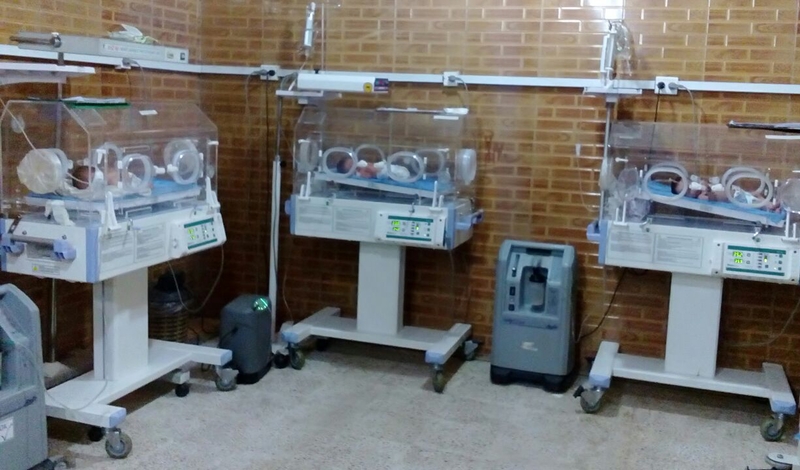Staff remain to help sick and wounded in besieged city
The Malteser International supported children’s hospital in Aleppo, Syria, has moved its operations into the cellar in order to give staff and patients as much safety as possible. The decision to move the facility was made after a newborn baby was killed during an attack last week when the oxygen supply to its incubator was interrupted. Outpatient care is now limited to only the most serious emergencies.
The rebel-controlled zone in the east of the city where the hospital is located has been besieged by the Syrian army for around a week. Supply routes into the encircled parts of the city are closed – cutting off the city’s civilian population as well as the rebels.
“The people here are in a hopeless situation. There are many parents with seriously ill children who are too afraid to bring them to the hospital because they are frightened of further targeted attacks on medical facilities,” said Janine Lietmeyer, Malteser International’s Middle East Regional Manager.
“The corridors out of the city are not a safe means of escape for the trapped civilians. Our local partner organization is reporting that families trying to leave the city are being prevented from doing so by force of arms,” said Sid Johann Peruvemba, Malteser International’s Vice Secretary General. “Humanitarian corridors need to be under international supervision, for example by the UN. At the moment, people in the city face an uncertain future whether they decide to leave or not: they have the choice of either staying where they are and starving, or taking a potentially deadly route to the government controlled zone where they will be treated as terrorists. The people trapped in Aleppo are in urgent need of help, but it is not possible to bring aid supplies into the besieged areas.”
Medical personnel at the Malteser International supported hospital are continuing their work.
“The premature infants that are being taken care of at the hospital cannot be evacuated,” said Lietmeyer. “Their incubators and other essential medical equipment require constant power. The hospital staff are absolutely clear that they are staying, even if that means putting their own lives at risk, because they are the only chance that the children in the hospital, and many others in Aleppo, have of surviving this war.”
Malteser International has been supporting the pediatric hospital since July 2015 – paying the salaries of staff members, and financing the purchase of equipment including ventilators and incubators. Malteser International also provides medical care for around 300,000 people living near the Syrian-Turkish border at four basic health units operated by its partner organization. More than half of these are internally displaced people living in camps.










